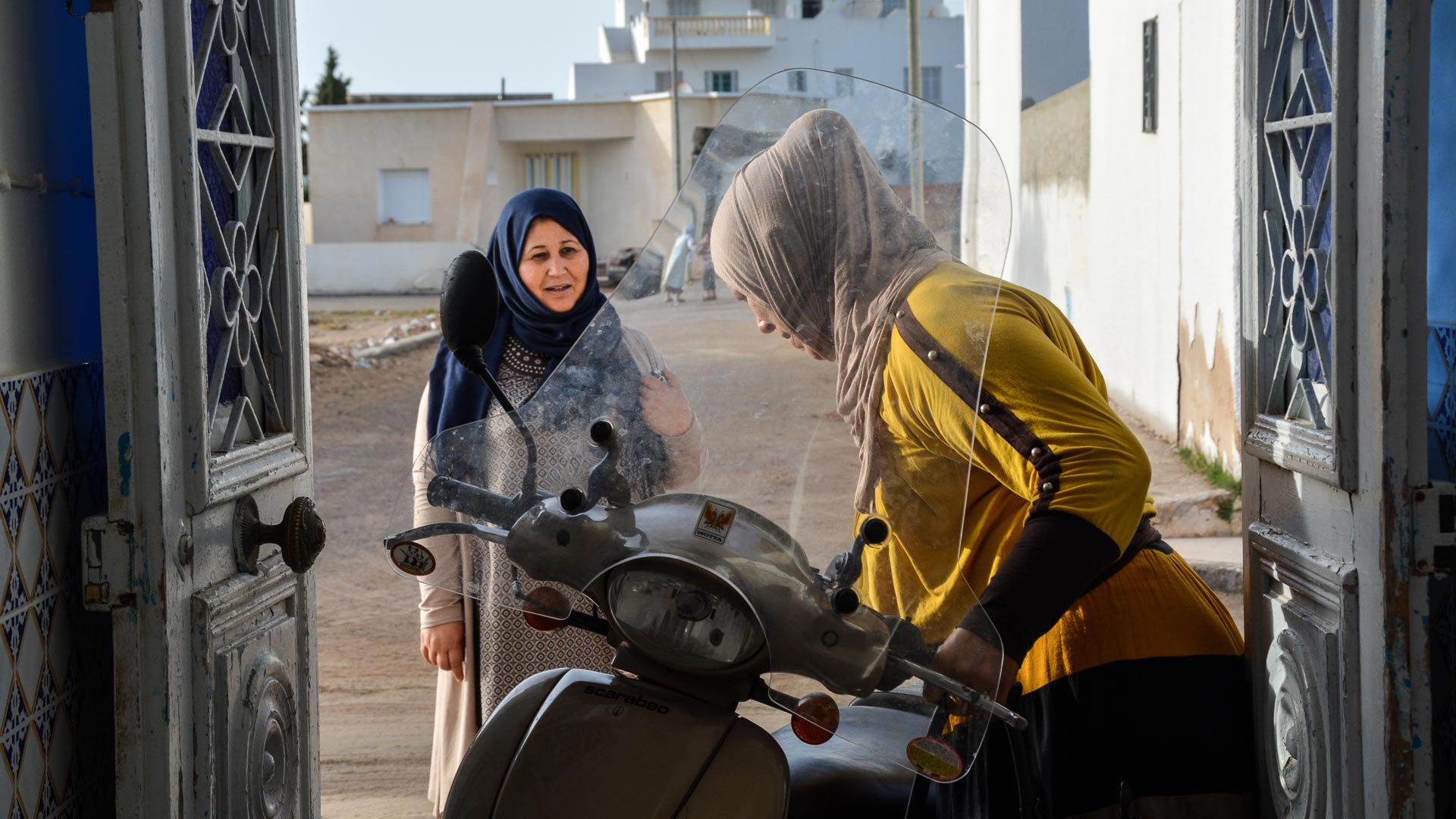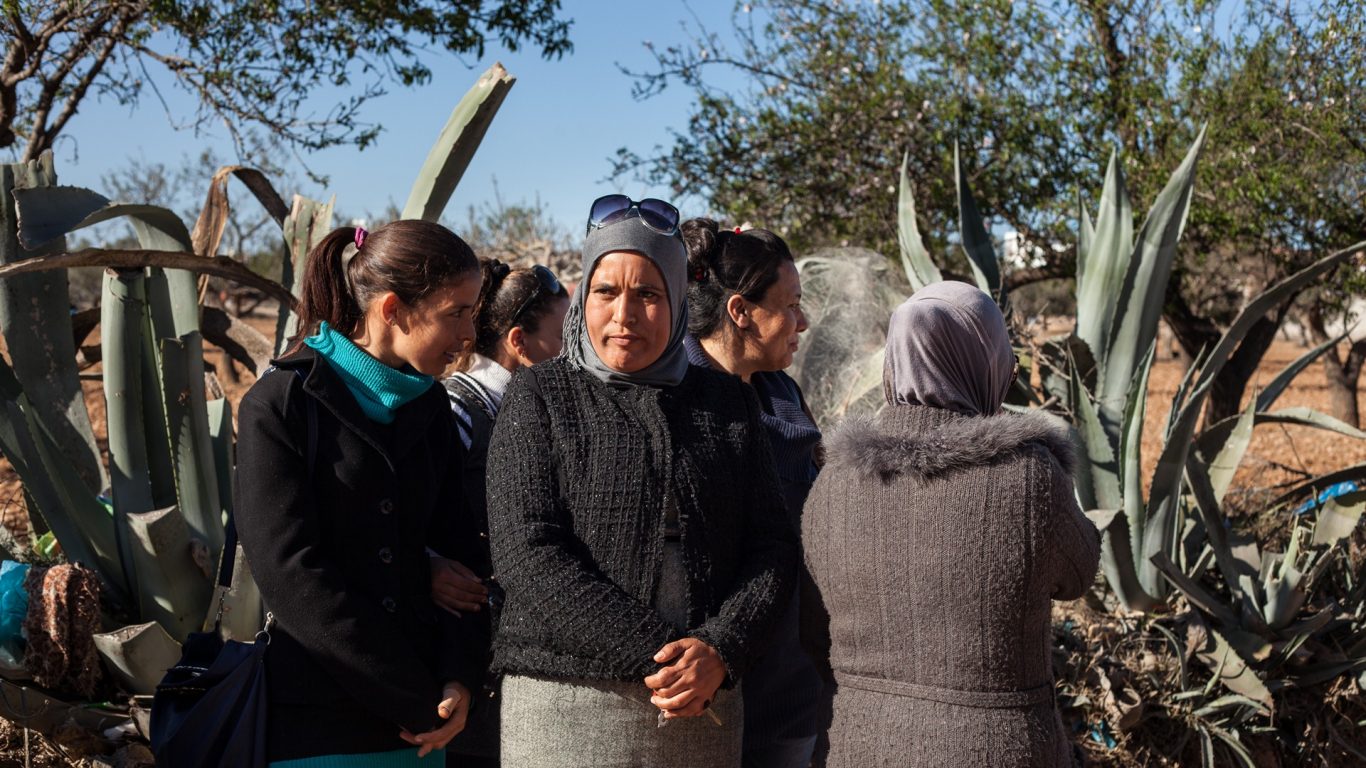Short of raw materials
Wassila Lachtar is in "a desperate position." After more than 20 years of working in the textile industry, the 50-year-old woman finds herself unemployed and without any idea of how to support her family. Her husband and son are fishermen, but their income is not enough. "I have a family, I have debts... We can't make ends meet," she explains, on the verge of tears. Whilst trying to find work, Wassila has turned her garage into a small shop selling salvaged goods. Since the closure of Mamotex, the motorbike that she used to travel to work on has been collecting dust in the hallway of her house.
In a quiet neighborhood away from downtown Chebba, Leila Deyyek’s house is under construction. The foundations are not yet finished, but the former textile worker is already imagining the layout of her future home. This mother has worked all her life in factories, including 20 years in Mamotex with Wassila. "Despite my monthly 500 dinar salary, I managed to raise three children," she says proudly. "One is a doctor, the other a PhD student, and the third a sales manager. At least they will have a better life than me," she assures.
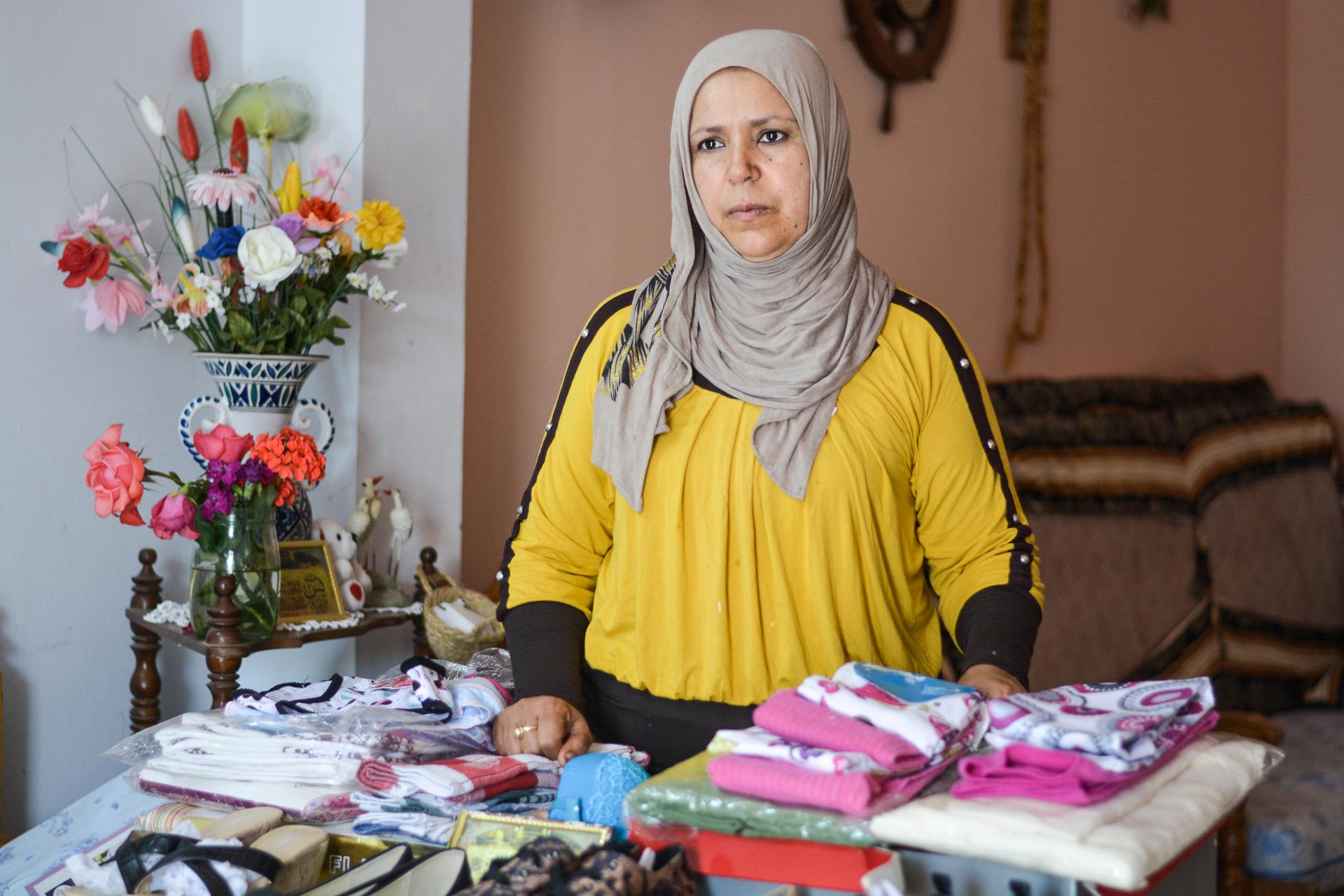
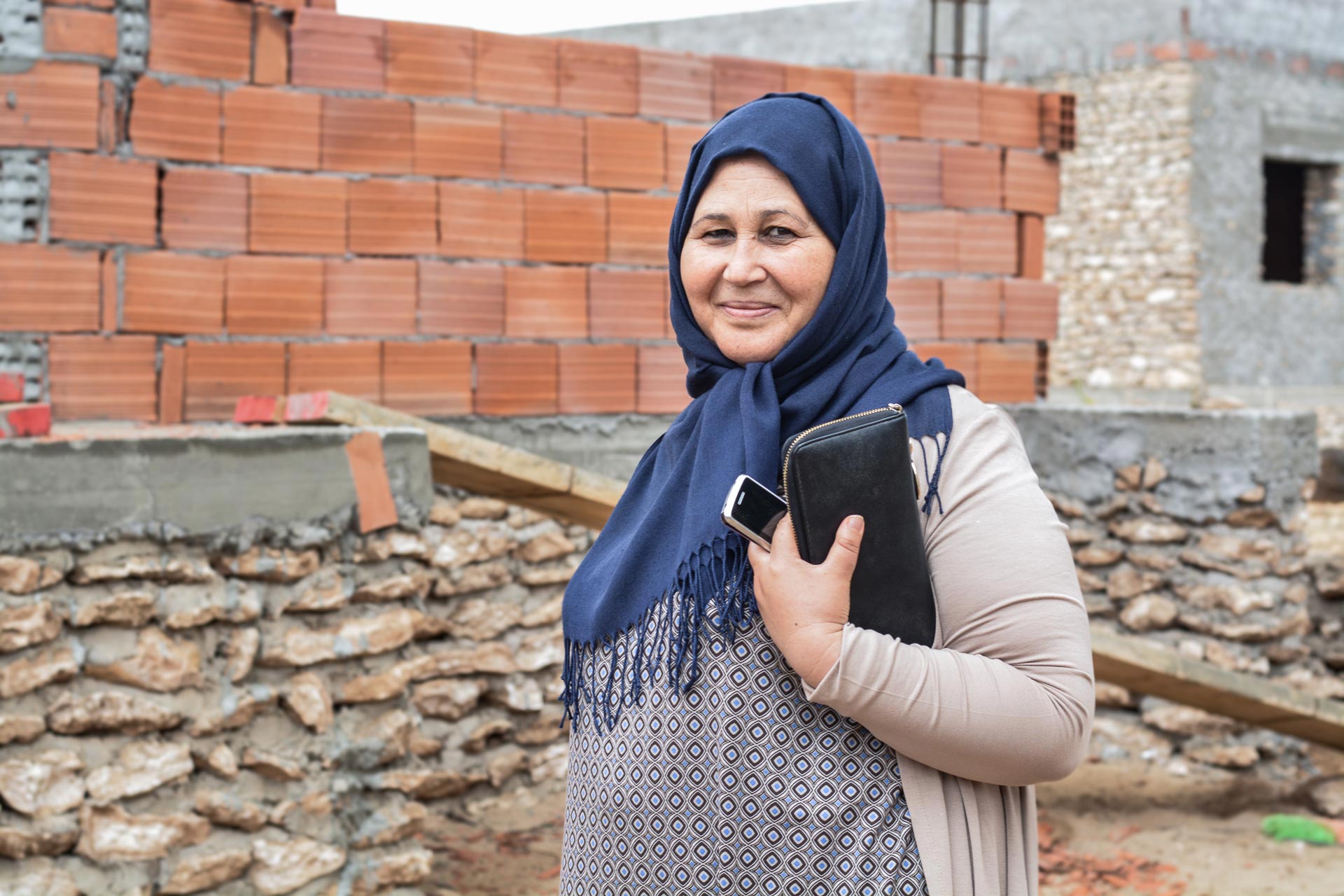
In January 2016, Leila, Wassila, and other colleagues joined together to confront their boss, Mounir Idriss. He told them that they would not receive their end-of-year bonuses and that he could no longer afford to pay their salaries. According to him, the company was in bad shape due to the economic recession and the new demands made by the female work force following the 2011 revolution. "The workers started asking for better working conditions and better wages. I wasn't able to meet these demands because the textile market was going through a slump. All the problems started when they joined the union," says the director.
However, his plans went too far and the female workers began organizing demonstrations outside of the factory. After more than a month of protests, an unprecedented agreement was signed between the government, the UGTT, and the factory manager. The 67 female workers obtained the right to self-manage the factory on the grounds that they would reimburse their lost wages from the profits of the company... A first in Tunisia.
But the battle is not yet won for these workers. The company Sodrico is a major supplier of Mamotex and is run by Idriss’ cousin. Following the settlement, he made an oral commitment to continue delivering the raw materials. However, he eventually retracted this commitment and now refuses to send the fabrics needed to make the products. According to Sabri Ben Kileli, the lawyer for both Mamotex and Sodrico, the manager fears "the goods will be taken hostage" and "that the orders will not be fulfilled on time." The workers feel as if all the progress they fought for has been completely undone.
On the same subject

Recourse to Justice
Many of the younger women have looked elsewhere for work and around a dozen of them managed to find new jobs. But Wassila has not been successful. "The situation is complicated for women over 30," she explains."Other textile companies only want to hire young people, they know it's an unrewarding and demanding job. They're afraid that we older women will reduce output... Yet it's thanks to Leila's work as a supervisor, my work as a trainer, and that of other older women that Mamotex has a good reputation," she exclaims.
Despite the obstacles, these women refuse to give up. Seeing that it would be impossible for them to return to work, they decided to file a complaint in February. They demanded payment for January’s salary, their performance bonuses, unemployment compensation, and Social Security (CNSS) payments. "We decided to take the case to court because of the immoral collusion on the part of Sodrico and Mamotex," Wassila explains. "It was the last resort. We told ourselves that there might be some justice left in Tunisia..."
150 complaints were filed in total, three from every worker. The lawsuits concerning wages, bonuses, and unemployment were all won, while those regarding CNSS have been postponed. Since the first victory, Wassila keeps the legal document in her pocket as proof of this triumph. But she is not overly optimistic. "Even if we won, I still don't have a job or money."
"Even if these women are successful, they have very little chance of receiving their money," says Ben Kileli. "The company has a debt of 200,000 dinars, my client is unable to repay his employees." The bailiff in charge of refunding the workers will make an inventory of all the goods in the factory. But Leila and Wassila do not believe the outdated-machines will equate to a full refund of what they’re owed. Behind the counter at the bailiffs, the two women are getting impatient; they know they won't be getting anything more out of him.
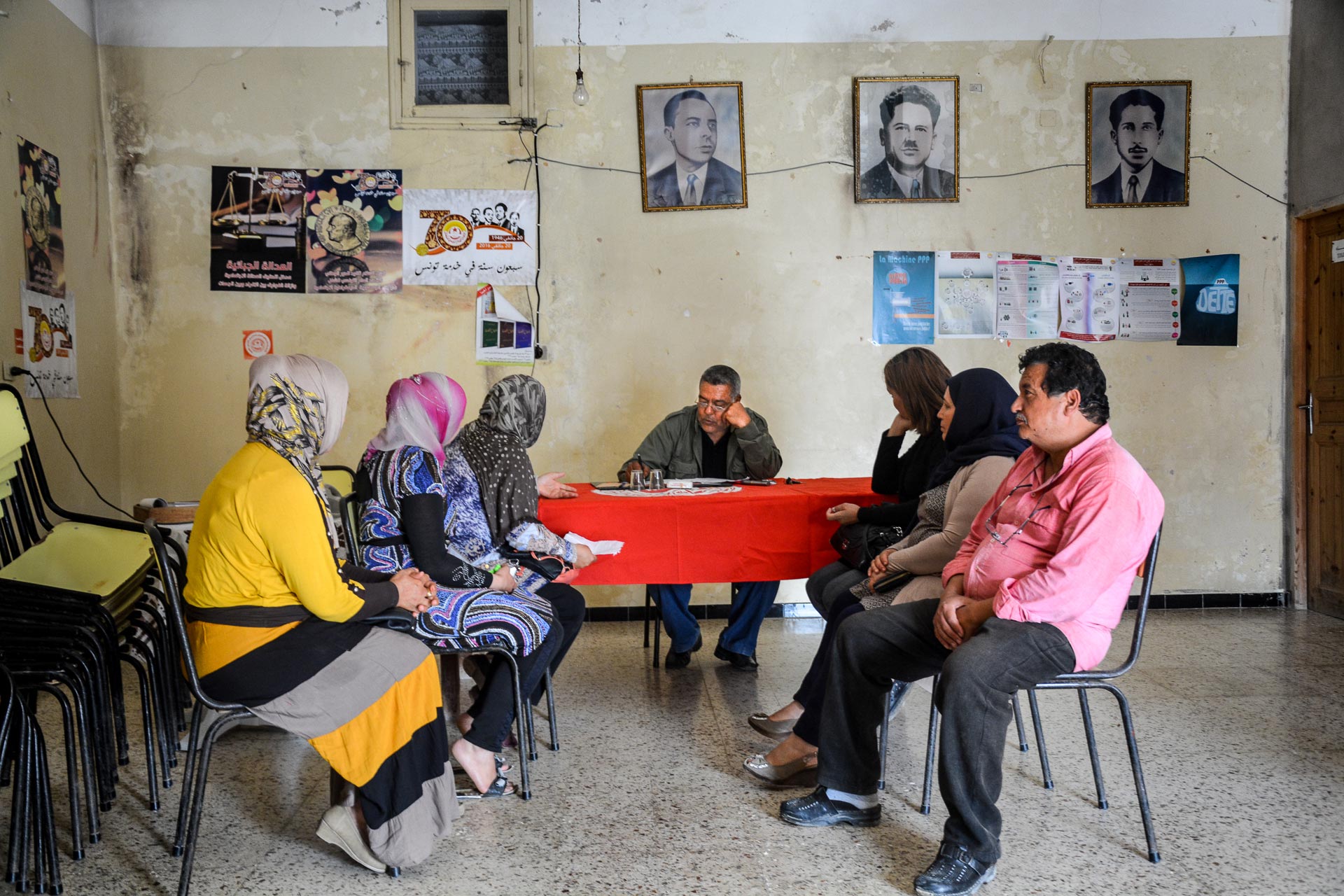
A "failure" for the ugtt
Progress may have come to a halt but that does not prevent Wassila from continuing the effort. On behalf of all of her colleagues, she regularly goes to the Mahdia court to follow the developments of the latest trial. At the same time, she often visits Bahri Hedili, the representative of the UGTT in Chebba, for advice. This trade unionist acts as an intermediary between the court and the workers. "The workers generally don't have a lawyer," he explains, "so they expect support and guidance from the UGTT.’’
Leila and Wassila arrive on Wednesday, but Hedili's office is already occupied. Three female workers at the Sodrico factory are complaining about their working conditions and the company's union, which they believe favours the management. Hedili listens to them patiently before inviting in Leila and Wassila. "Since 2011, I've been overwhelmed, I only have this all day," he sighs, "but it shows that workers are starting to unionize and claim their rights."
Unfortunately, Hedili has no new information about the Mamotex case. "In the end, we cannot deem this a success for the UGTT," the trade unionist commented. "The failure is that we were not able to save Mamotex. But in the process, we learned lessons that will remain with us."
"You can't imagine how much i've given"
Leila has been retired for over a year, but that hasn’t stopped her from being a key figure in the Mamotex case. Last January, when her comrades decided to protest against their boss, she chose to join them and offer her support. Leila had to be there because she was the first one to join a union, back in 2013, and was responsible for pushing these women to fight for their rights. "Imagine people working for 17 years, without a contract, with a salary of 120 dinars a month," describes Leila. She explains that it is thanks to the union that 21 women were able to get contracts. " Eventually, all the employees at Mamotex ended up joining the union! That was unimaginable a few years ago."
Leila finds it difficult to talk about the harsh working conditions she has endured. For these women, the past two decades haves been a tough ordeal. "In the beginning, the manager was kind and motivated. But, little by little, he became manipulative, he played with our emotions, he demeaned us," says Leila. "The working conditions were unbearable. I tried several times to resign but he always managed to convince me by talking to my husband or those around me. I had no choice, I wanted my children to succeed. I can't believe I stayed there for 20 years..."
Wassila harbors the same feeling of resentment. Under his authority, she always worked in deplorable and humiliating conditions. She struggles to hold back her tears when speaking about this period of her life. "For 20 years, I invested all my youth, all my energy into this work, and in the end, I get nothing in return..."
Yet, given her current situation, the former worker admits that she might return to work with Mr. Idriss if the factory reopens. The court is currently determining whether the company's bankruptcy was inevitable or if an economic turnaround was possible. If the latter case is proven, the director could return to his duties. Some workers would even be willing to drop the lawsuit and return to work under his supervision, even without their January salary and bonuses.
Without holding on to much hope, Leila is waiting for her remaining financial compensation. She receives 235 dinars a month in retirement pay but should be receiving a larger sum. "The director paid me part of my salary under the table," she explains, "however, 235 dinars doesn't correspond to my real number of working hours." It is now impossible for her to contest this decision because Leila has been retired for more than a year. "Even if I was still a union member, nothing can be done about this legal clause," the former worker laments. The mother will probably never get her money, but she believes that by taking her former boss to court regained "the most important thing of all": her dignity.
